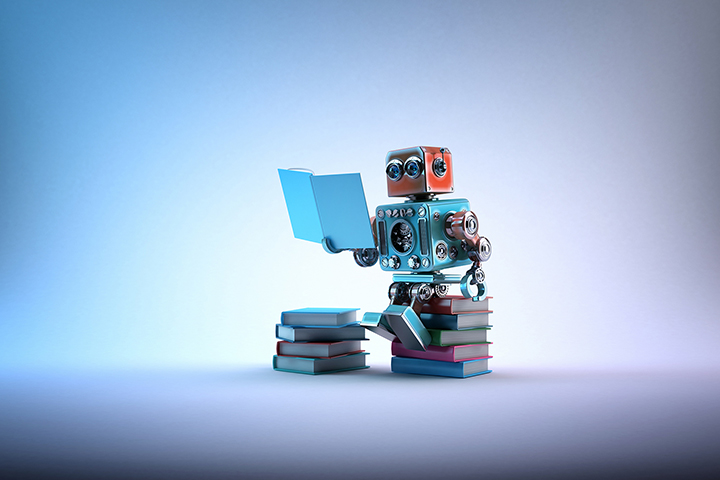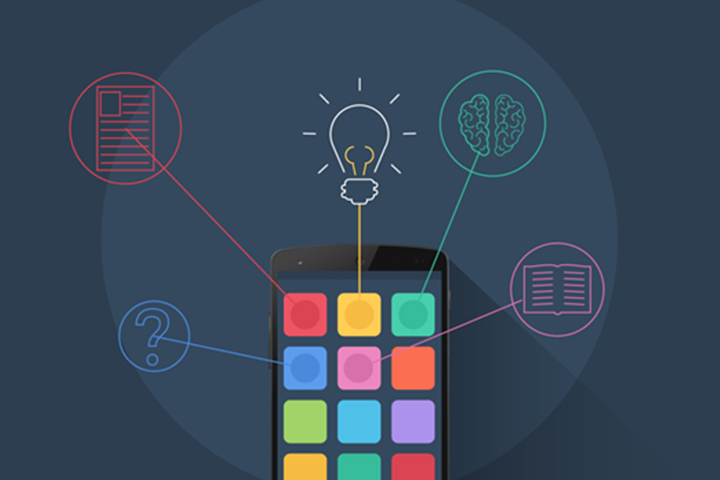 TEN CHANGES THAT WOULD IMPACT THE FUTURE OF LEARNING
TEN CHANGES THAT WOULD IMPACT THE FUTURE OF LEARNING Futurologists have positioned the change dynamics of the future in the following three words – Skill, Scale and Speed. The future will be characterized by continuously changing skills, the scale at which these changes occur and the mind-boggling speed at which such changes would occur. The nucleus to such changes would be a world led by a thought leadership and the emergence of newer knowledge, newer technologies and innovations which trigger these changes creating a compulsive need in the minds of consumers. Market forces will articulate these changes as drivers of economy and as wealth generators. The consumerist attitudes of the society would fashion their hunger for novelty by painting a modern art of these new products, whatever be their length of life. All these have a prime market and would impact the educational portals of the country, as a subject of current knowledge with a futuristic perspective. Based on these assumptions, the content and delivery of education and other knowledge tools have taken new “Avtars” from time to time. They have impacted the learning style, learning constructs and their delivery architecture. On an ongoing note, it is possible to predict the ten influencers of the quality, content and delivery of education in the next decade of the twenty first century.

1. The 5G Spectrum and beyond
The bandwidth of the spectrum has always played a significant role in the knowledge management and its processing. The quality and the speed of the bandwidth has a direct relationship with the speed of access and the effectivity of the data management. The information access, information quality and accuracy have significantly improved over the decades, with every door of the spectral gateway opening. On similar lines, the availability of the 5G spectrum and its successors in the next couple of years will impact the way we learn, the way we store knowledge, the multiple pathways of knowledge management and its delivery. Education at all levels will respond to these changes and will re-engineer itself to meet the impatience of the restless human mind. “We will have an infinite bandwidth in a decade’s time” says Bill Gates. One could hardly imagine how it could impact our universe of knowledge.
2. Artificial Intelligence Derivatives
Computers will overtake the humans with AI within the next 100 years. When that happens, we need to make sure that computers have goals aligned with ours.” Said Stephen Hawking. The logistics of functioning of the Artificial Intelligence is not too complex as compared to the logistics of the functions of the human intelligence. However, the man-machine interface has created a magic by re-articulating the truth and the fancy of human execution of certain functions. The derivatives of Artificial intelligence in assisting manufacture, services and social relationships appear to be triggering a cultural change. Its catalytic effect in impacting human thought designs to replace their own presence through these fabricated technologies is ushering a new dimension in our functional platforms. Naturally, education being an instrument of designing thought architectures, will get influenced and evolve into a newer generation. Enough evidence is already available on how content and the delivery of the content and its auxiliary systems are responding to Artificial intelligence. Its multiplier effect in the next few years would completely redesign the content architectures and its delivery systems – and as a resultant, the way people handle knowledge or learn.
3. Quantum Computing
“If quantum mechanics hasn’t profoundly shocked you, you have not understood it yet” said Neils Bohr several decades before. From its evolution as a simple calculating machine, the computers have gone through several generations of evolution, simultaneously bringing unprecedented changes in human life systems, social architectures, communication, knowledge processing and management and so on. Its impact on edutainment, entertainment and infotainment have brought changes which were least imagined or expected. We are presently stepping into the world of ‘Quantum computing’ from ‘classical computing’ The ability of Qubits to design and articulate parallel universes for all systems, its ability to create millions of perceptions unimaginable, its operational fantasy that would provide possibilities and decisions which would challenge human intelligence, its possibility of taking man-machine interface to an entirely different plane of ideation, will attract initiatives which will impact the next decade of learning experience and hence its associated infrastructure – hardware, software and humanware.
4. Design Thinking
“The human brain has 100 billion neurons, each neuron connected to 10 thousand other neurons. Sitting on your shoulder is the most complicated object in the known universe” says Michio Kaku, the author of “The Future of Mind.” Design thinking is both an art and science. It is indeed a purposeful approach to problem solving calling for focus, attention, understanding, insight, excellence in cognition and clarity. Given the social dynamics, the life styles would warrant the skills of design thinking both at the personal level as well as at professional levels. Articulated exercises in design thinking should help in better organization of life and our relationship with our immediate environment. With increasing focus on thinking skills, the futuristic curricula would support Design thinking as integral to any educational processing. It would simultaneously call for pedagogical updates.
5. Intelligent Tools for Informal Learning

With the expanse of learning opportunities, learning content and learning universe, the formal structures of schooling seem to be too inadequate to provide inclusive as well as diverse facilitation for learning to the aspiring learners. As such, increasingly, it would also not be possible. The gateways for informal learning have already opened and as such the tools and delivery systems of informal learning processes have multiplied and outweighed the formal systems in the last decade. With the induction of artificial intelligence, virtual reality and other visual and auditory tools, learning will be liberated from the clutches of the four walls of institutions. Tools customized enough for select clientele, tools that would meet and deliver specific needs, tools that would provide connect with other systems which were earlier inaccessible and the similar, will haunt markets creating enough competition to access data and knowledge at affordable costs. As tools become more and more intelligent, their reach to the layman and wayside knowledge seekers would be focused, caring and purposeful. This informal learning would have a serious impact on formal learning structures, who would find coping as well as survival problems in the future.
6. Knowledge Cafes and Kiosks
As people find knowledge more accessible, authentic and stress-free, the idea of institutional learning including schooling will come under scanner closely. While they could continue to survive, their role will manifest in a more modern form like ‘Knowledge café’ – where there would be scope for knowledge assimilation and sharing on a more informal way. The freedom to learn, the facility and opportunity for time and space free learning, the frustration to controls exercised through learning by the classical ivory towers of knowledge, the quest for immediate solutions to problems related to knowledge, the joy and opportunity for co-construction of knowledge through social platforms, and more, would destabilize the idea and structure of schooling. “Knowledge Café’ – the informal learning centres within the school model will emerge enabling participatory and collaborative models of learning, where teacher will the member of a team of learners. “The bulk of mankind is school boys throughout life” said Thomas Jefferson. Why not the teacher?
7. Convergence and Divergence of Knowledge Systems
“The centre of the universe is knowledge; its circumference is ignorance” said Hamilton McCormick, the American inventor and author. The last few decades have witnessed inter-disciplinary transaction of knowledge portfolios. Knowledge is being celebrated as integral and opportunities of positioning one discipline of knowledge in the universe of the other, both for play and purpose, has led to expanding domains of the knowledge. This has created new knowledge capitals and creation of more intellectual wealth that has economic and social relevance. On a similar note, every discipline of knowledge has exploded (rather imploded!) giving rise to new capsules which are growing into a separate knowledge universe. Thus, convergence and divergence of knowledge systems are creating on a continuous basis diversified paths of learning. In this growing process, several of the old and classical domains of knowledge are losing their shelf life. This dynamic might call for a repositioning of learning systems on a periodic basis.
8. Researches in Neuro-cognitive Sciences
“All kids are born geniuses, but are crushed by society” observes Michio Kaku, the futurologist and researcher in Neuro sciences. Researches in Neuro-cognitive Sciences are revealing newer facts about learning and memory. The emergence of Bio-digital brains by harmonious integration of technology with human physiology is breaking several established definitions and resultant practices in learning. Experiments in knowledge transfer between brains and between systems is demolishing existent belief systems about assimilation and transfer of knowledge. Further such experiments offer several solutions to the problems people have faced in learning because of some challenges and disabilities. The emerging vistas of such researches might redefine our learning processes and possibly the tools used for learning.
9. Co-Construction of Knowledge
Knowledge is becoming increasingly a social wealth rather than personal wealth. Shared knowledge constructs and shared knowledge experiences seem to dominate a vibrant knowledge society. The focus is shifting towards co-construction of knowledge so as to maximize its productivity, transparency and utility. This also provides an opportunity for participative growth for knowledge workers universally. At the educational portals, it helps in easy access of global knowledge at the click of a button and thus to stay ‘current and competent’ always. The mindset for co-construction of knowledge and its fall out is likely to impact the teaching-learning domains to make them equally participative, transparent and committed.
10. Retail Markets of Knowledge delivery

Modelling Amazon and other market delivery systems, knowledge delivery systems in capsuled packages would become available on a retail basis from Knowledge warehouses. Huge Knowledge warehousing concepts would evolve in private markets, storing, recapturing, re-engineering, redesigning classical knowledge packages of the past to meet the needs of modern consumers of technological age. This might, indirectly, focus on mining knowledge which has been out of search, attention or use; and to calibrate them to modern marketing methods and to create a need among the consumers. A number of folk, native and ethnical subjects could bring immense value to the market. This would also serve the non-routine, non-structured learners with curiosity and hunger for self-knowledge and self-development. The availability of such packages might influence the classical pedagogical methods of delivery.
The future of learning appears like the launch of a human race in a different planet. It is likely to be exciting, thrilling and adventurous. “The most reliable way to predict the future is to create it” said Abraham Lincoln. Isn’t it true? Get.. set.. and go!!
Image courtesy:https://cdn.redshift.autodesk.com/2016/05/Not_Standard_Lecture_MicroCredential.jpg
Image courtesy:https://miro.medium.com/max/624/1*5Urz32HMGF-S-hf_Ebx8Rw.png
Image courtesy:https://www.nsca.org/wp-content/uploads/2019/02/5-Benefits-of-Ongoing-Employee-Training.jpg